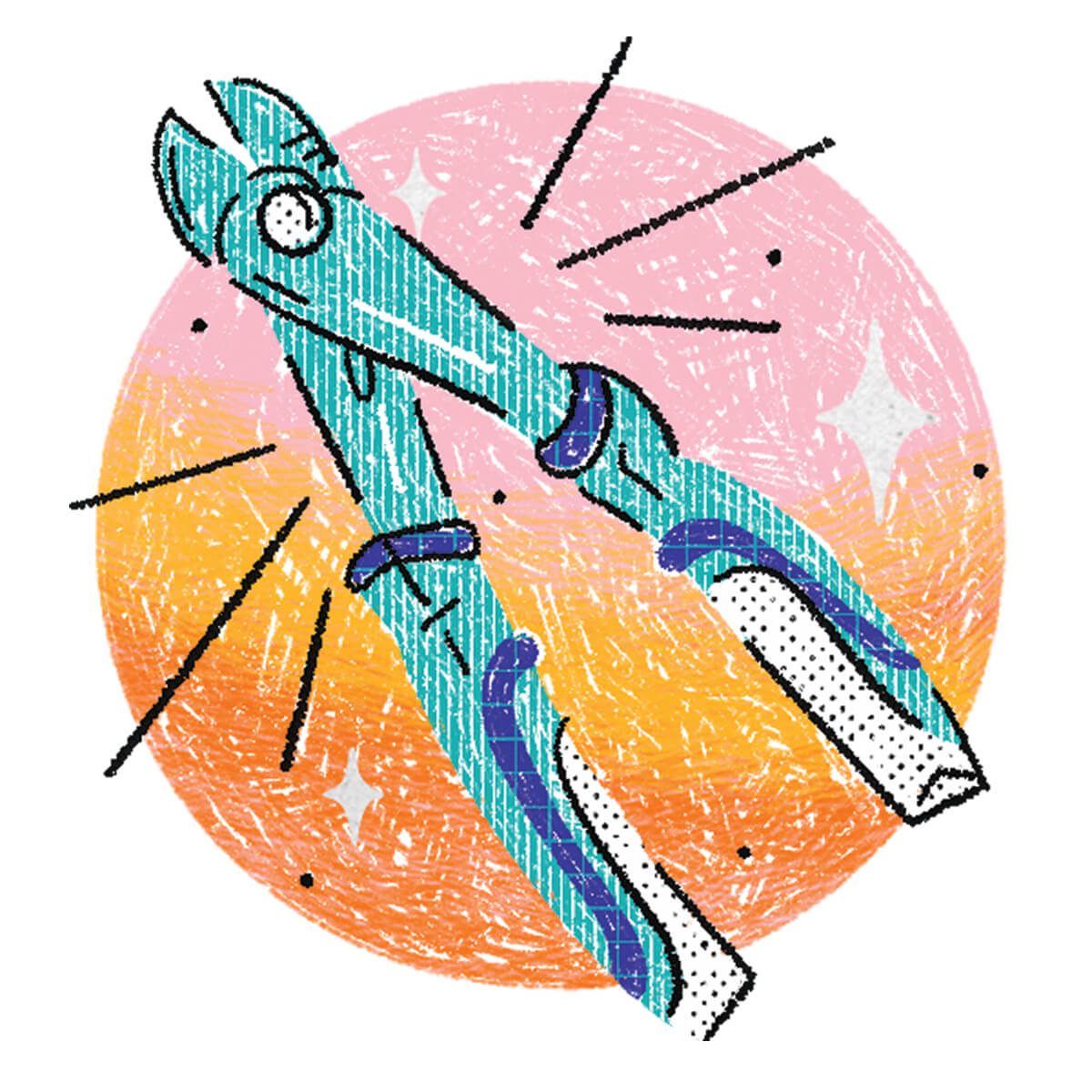Business & Development
Baltimore Women Are Making Their Way Into Traditionally Male-Dominated Trades
The Baltimore metro area recently ranked fourth in the nation for the highest number of women in the construction industry. Here's why that matters:

When Danni Donovan, master plumber and owner of Donovan WaterWorks, knocks on a door, she never quite knows what response she’ll get when the homeowner opens it. If it’s a female, usually there’s a sigh of relief.
“But countless times I’ve had a gentleman answer, and they’ll say, ‘Do you know what you’re doing?’” she says.
Donovan says it is unfortunate that her skills are often judged solely by her anatomy. But she usually falls back on humor. “I’ll say, ‘Yeah I know what I’m doing, I watched a YouTube video before I came over here.’”
This is a scenario Krystal Walker, owner of 1st Amazon Construction Services LLC, can relate to. Walker began in the roofing business over 20 years ago, starting as a receptionist and working her way up to become licensed with the Maryland Home Improvement Commission. She opened her own contracting business in 2020 and says many of her clients seek her out because she is a woman and a Black-owned business. And many men are pleasantly surprised. But there are holdouts.
“I did an estimate for a gentleman, and I gave him my card and he asked me who he should talk to if he had questions and I said, ‘Me,’” she recalls. “He said what if he wanted to speak to the owner and I also said that’s me. He gave my card right back to me just because I was a woman-owned business.”
Despite the occasional sexism, these women love the challenges of their job—troubleshooting problems and creating solutions. They also like the customers—Donovan particularly likes meeting her customers’ pets. But she says there’s still a double standard to be managed.
While a man can make an error—tradesmen are only human, after all—Donovan says, “As a female in the trades, there’s zero room for error. You have to be above and beyond at all times, constantly proving yourself.”

Women make up over half the country’s workforce but, according to the Department of Labor (DOL), they account for only 11 to 14 percent of skilled trade apprenticeships—think plumbers, electricians, HVAC technicians, roofers, and masons. But that’s changing.
DOL numbers state that in 2021, the number of women working in trades reached its highest level ever (314,000) and during the last five years, the number of tradeswomen increased by almost one third.
The Baltimore metro area is leading that pack and recently ranked fourth in the nation for the highest number of women in the construction industry, according to a study by Construction Coverage.
This matters because women bring something to these fields that would otherwise be missing.
“Compassion and empathy, that’s exactly what’s been missing in plumbing,” says Donovan. “If you’re calling a plumber, chances are you aren’t having a good day. Something catastrophic has happened. If you just come in there and say, ‘Yep, you’re looking at $5,000, sign here,’ there’s no understanding there…If you give people options and explain what’s going on while being understanding of their situation, everything else comes naturally.”
When Walker began her contracting company, she purposely used pink in her logo so there would be no doubt it was woman-owned. To her, that sends a message to clients that her approach is going to be different.
“I hold their hand, answer their questions, explain things,” she says, adding that women tend to be more detail-oriented and more organized, which customers appreciate. “And I’m on the job site making sure everything is neat, that my guys are neat, that the work is neat and pretty. I tell my guys, ‘The work needs to be as pretty as the boss.’”
“As a female in the trades, there’s zero room for error. You have to be above and beyond at all times, constantly proving yourself.”

Jennifer Dewees, president of the Maryland Center for Construction Education and Innovation (MCCEI), a member of the National Association of Women in Construction (NAWIC), and co-founder and construction lead of the Maryland Apprenticeship Connector, says women are “typically transformational not transactional” in their business approach. Where a male tradesperson might focus on the work and closing the sale, women tend to be more communicative, to provide options, and to take time to talk to clients about the work.
And, Dewees says, there’s never been a better time for women to get a foothold in trades.
“We have a major shortage of workers across the U.S. and crumbling infrastructure that needs to be fixed,” she explains. “Women are a huge untapped resource.”
Like workers in so many fields—nurses, teachers—tradespeople are retiring in large numbers and the pipeline is not there to replace them. There’s been a marked decline in vocational school programming and attendance since the mid-’80s, when there was a national push for all kids to go to college, and that has impacted the number of available young, trained workers.
MCCEI works to bring women into trades with intention. The group is tapping youth too, running a camp each summer to educate middle and high school girls about the construction field. Every year since they began there’s been a waitlist.
Dewees says this industry is a perfect fit for women because it is diverse in its offerings. There are residential, commercial, and industrial pathways so a woman can be anything from a construction worker to a site manager to a business owner. Also, trades tend to have higher pay and fewer wage gaps than other fields. She adds that many women who are homeowners feel safer or simply prefer having a female tradesperson in their home and may seek out a woman-owned business.
Donovan says probably half of her customers call because hers is a woman-owned business. “We hear a lot of how some tradesperson talked down to me, asked to speak to my husband,” she says. “There’s a sense of relief that we’re on the same level.”
This was starkly apparent when Donovan was called by a transgender woman who was in tears because she needed to replace a hot water heater. “She was not respected by other tradespeople,” she says.
When Donovan and her crew left after successfully completing the job, the woman was in tears again—of happiness. “She was over the moon that we treated her like a human.”
It’s not just job availability and security that makes this an optimal time for women to be moving into trades. Many developers and contractors are buffing up their diversity, equity, and inclusion outreach and are incentivized to hire females.
Lynn Selby saw this trend and, as executive director of the workforce development nonprofit, the Caroline Center, jumped on it. This year the center launched its BuildHER pilot program with a class of five female students. They will do essential skills training at the center and then pre-apprenticeship education at the Baltimore Washington Building and Trades Council.
The Caroline Center is not just about getting women jobs. It believes in building careers. “What a regular apprenticeship offers is a ladder for women where the more you learn, the more your skills and earnings increase,” says Selby. Although an apprenticeship takes time, you can “learn while you earn,” and come out of the gate with an in-demand skill set and no burden of student loans.
“For us, it’s also an investment in Baltimore,” Selby continues. “If a woman who is raising her family does well, Baltimore does well.”
Leaurdra Raye, owner of Miss Electricity LLC, has been a master electrician for more than 25 years. Ironically, she got into her trade because of a man. She had the grades to apply to a city-wide high school. Her boyfriend at the time was headed to Mergenthaler Vocational School to study the electrical trade, so she followed him.
It was 1986 and she was the only female in the program. She said the other participants were “horrible” to her and even when she was licensed, she was often excluded from bigger jobs because she was female.
But she loved the work and says, “I’m glad I stuck it out. Electrical work will always be around, so I never need to worry about being unemployed, and the pay is good and allows me a lifestyle.” Raye uses the proceeds of her business to feed her travel bug; she’s taking her nieces to the Dominican Republic later this year and attending a school reunion in Jamaica, too.
Raye (who is still dear friends with that old boyfriend, by the way) has been around long enough to see attitudes change for the better. Now, customers are often pleasantly surprised that their electrician is a woman. “It’s nice because a lot of people, they still aren’t used to seeing females in this field, so their reactions are really exciting.”
The Baltimore metro area recently ranked fourth in the nation for the highest number of women in the construction industry.

As evidenced by the stories of these tradespeople, many women sort of fell into the work. Walker, the roofer-cum-contractor, got into the business because she was encouraged by her old (male) boss. Donovan, the plumber, didn’t find college engaging and her mother, remembering how her daughter liked to take things apart as a child, suggested trade school. Raye was simply following a youthful crush.
A hurdle for women getting into trades sometimes has nothing to do with sexism but simple lack of awareness that the jobs exist. Society is still hardwired to think these are jobs just for men.
Case in point: Donovan had a customer who was telling her that her daughter was a bit adrift about what to do with her life. But even after talking to her female plumber, the woman didn’t consider trade school for her daughter until Donovan suggested it. It’s one of the main reasons Dewees says they do their youth camp.
“If you can see it, you can be it,” she says. Many of Walker’s 11 workers (including two women) have been with her for many years, dating back to her previous job when she was working her way up. She says there’s no machismo there; her guys even embraced the pink logo on their uniforms.
The old male-dominated stigmas are fading and if women seize the opportunities the trades offer, she says the customers are there to be had.
“I think this industry needs women,” says Walker. “My customers tell me that they like the time a woman puts in…It’s important to offer people a different way of doing things.”
Looking for women-owned home services? Start here:
1ST AMAZON CONSTRUCTION SERVICES: Roofing, siding, gutters and more.
DONE CONSTRUCTION: Kitchen and bath contractor.
DONOVAN WATERWORKS: Full-service plumber.
EASTWOOD PAINTING & CONTRACTING: Residential painting, sealing, restoration.
EHS MARYLAND: Contractor.
HERS ELECTRIC: Electrical contractor.
KULP PAINTING COMPANY: Interior painting and custom murals.
MISS ELECTRICITY: Electrician, (443) 865-0493
WALTER ELECTRIC: Full-service electrical contractor.